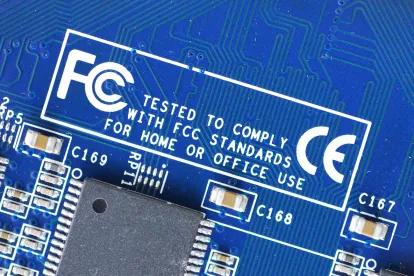On May 1, 2020, the Federal Communications Commission (FCC) adopted rules to strengthen protections against robocalls and the manipulation of caller identification information to misrepresent the true identity of the caller (known as caller ID spoofing).1 The FCC’s amended rules, which implement portions of the recently-enacted Pallone-Thune Telephone Robocall Abuse Criminal Enforcement and Deterrence Act (TRACED Act), streamline the procedure for commencing enforcement actions against violators and expand the statute of limitations applicable to FCC proceedings against robocallers and caller ID spoofers2 (see GT Alert, TRACED Act Subjects Robocallers to Increased Penalties, Outlines Regulatory and Reporting Requirements to Deter Violations).
The FCC’s changes to its rules include the following:
-
Eliminating the requirement that the FCC issue a citation to a person or entity that violates prohibitions against robocalling before issuing a notice of apparent liability if the person or entity does not hold a license, permit, or other authorization issued by the FCC. As noted by FCC Chairman Ajit Pai in the news release accompanying the FCC’s Order: “Robocall scam operators don’t need a warning these days to know what they are doing is illegal, and this FCC has long disliked the statutory requirement to grant them mulligans.” Caller ID spoofers are already subject to FCC enforcement actions without receiving a citation as a warning.3
-
Increasing the penalty amount to up to $10,000 for each intentional unlawful robocall in addition to the monetary forfeiture permitted under 47 U.S.C. § 503 (for persons or entities that are not FCC licensees or common carriers, the forfeiture penalty shall not exceed $20,489 for each violation and $153,669 for any continuing violation).4 Importantly, each unlawful robocall is considered to be a separate violation, so the potential forfeiture amounts could be very high.
-
Extending the statute of limitations applicable to FCC enforcement actions for intentional robocall violations and for caller ID spoofing violations to four years. Under the amended rule, the FCC may not impose a forfeiture penalty against a person for violations that occurred more than four years prior to the date a notice of apparent liability is issued. The statute of limitations had been one year for all robocall violations and two years for call ID spoofing violations. This change will significantly increase the timeframe of conduct subject to FCC enforcement and that can be included in a proposed forfeiture amount.
Conclusion
The FCC’s amended rules, consistent with the TRACED Act, are intended to discourage unlawful robocalling and caller ID spoofing by abolishing the “one free pass” formerly applicable to entities that do not hold FCC authorizations, increasing the penalties for intentional violations, and expanding the statute of limitations period. This is the FCC’s most recent action to implement the TRACED Act by strengthening protections against unlawful robocalls and caller ID spoofing. Other steps recently taken by the FCC include initiating a rulemaking proceeding to prevent one-ring scams (when a caller initiates a call and allows the call to ring for a short duration with the aim of prompting the called party to return the call and be subject to charges). Given the FCC’s significant focus on combatting illegal robocalling, it is important that companies that rely on robocalls to contact consumers understand the federal laws governing such calls implement procedures to ensure that they comply with those laws and regulations.
1 The Telephone Consumer Protection Act (TCPA) (which was amended by the TRACED Act) and the FCC’s implementing regulations generally prohibit the use of autodialed, prerecorded or artificial voice calls (commonly known as robocalls) to wireless telephone numbers and the use of prerecorded or artificial voice calls to residential telephone numbers unless the caller has received the prior express consent of the called party (certain calls, such as telemarketing calls, require prior express written consent) or is subject to specified exemptions. See 47 U.S.C. § 227; 47 C.F.R. § 64.1200.
2 The FCC issued these rules pursuant to an order, rather than utilizing notice and comment procedures, because the content of the rules did not require the exercise of administrative discretion. The rules will become effective 30 days after the date of publication in the Federal Register.
3 The FCC may issue a forfeiture order if it finds that the recipient of a notice of apparent liability has not adequately responded to the FCC’s allegations. The FCC may also seek to resolve the matter through a consent order which generally requires the alleged violator to make a voluntary payment, develop a compliance plan, and file compliance reports.
4 See 47 U.S.C. § 503(b)(2)(D) as adjusted for inflation. The FCC has authority to make upward or downward adjustments to forfeiture amounts based on several factors. See 47 C.F.R. § 1.80.




 />i
/>i

